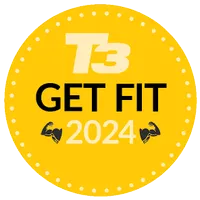I did a 10-minute head-to-toe stretch every day for a month. Was it worth it?
I challenged myself to do 10 minutes of stretching each day for a whole month – this is how it went and how I felt

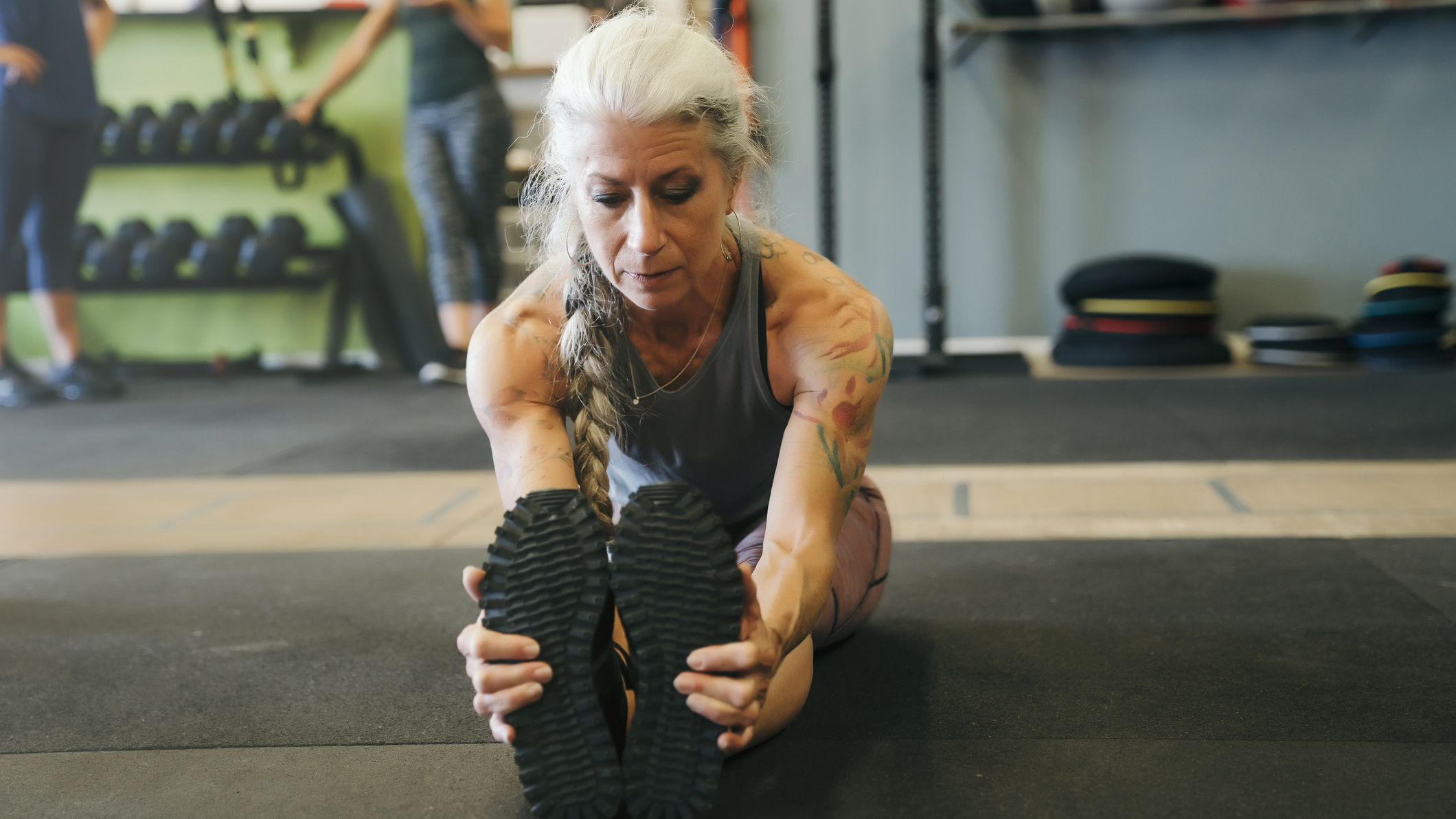
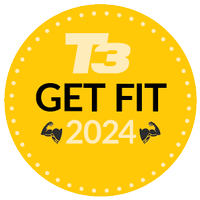
Get all the latest news, reviews, deals and buying guides on gorgeous tech, home and active products from the T3 experts
You are now subscribed
Your newsletter sign-up was successful
With our sedentary lifestyles made worse by desk-based work, it's no wonder we are constantly told to stretch more to feel better and relieve some of these aches and pains. I, too, work in an environment where I often stare at screens for more extended periods, which is why I decided to give stretching a proper go for a month to see if it can alleviate some of the niggling pain I have in my body.
I have never been too flexible. At 5,10", my hamstrings have always felt very tight, and my lower spine isn't too mobile, either. Adding to that, I sustained a groin injury when trying to do the splits at a pushy dance school when I was 18 and have struggled with my flexibility ever since. Not a great start!
My current exercise routine is a combination of walking, occasional running, cycling, Pilates and dance classes. Recently, I have shifted my focus to moving more gently and exercising little and often. Most exercise classes have a minimal amount of time designated for stretching, so it's up to me to make sure my body Is stretched as much as I need it to be to prevent injury.
Even though I think I'm in good shape for my age, I wondered if having a structured 10-minute stretch every day for a month made any difference to how I felt. Also, I wanted to know whether my range of motion would increase. If so, this was a pre-New Year's Resolution I would stick to. Did I succeed? Read on to find out.
Are there any benefits of regular stretching?
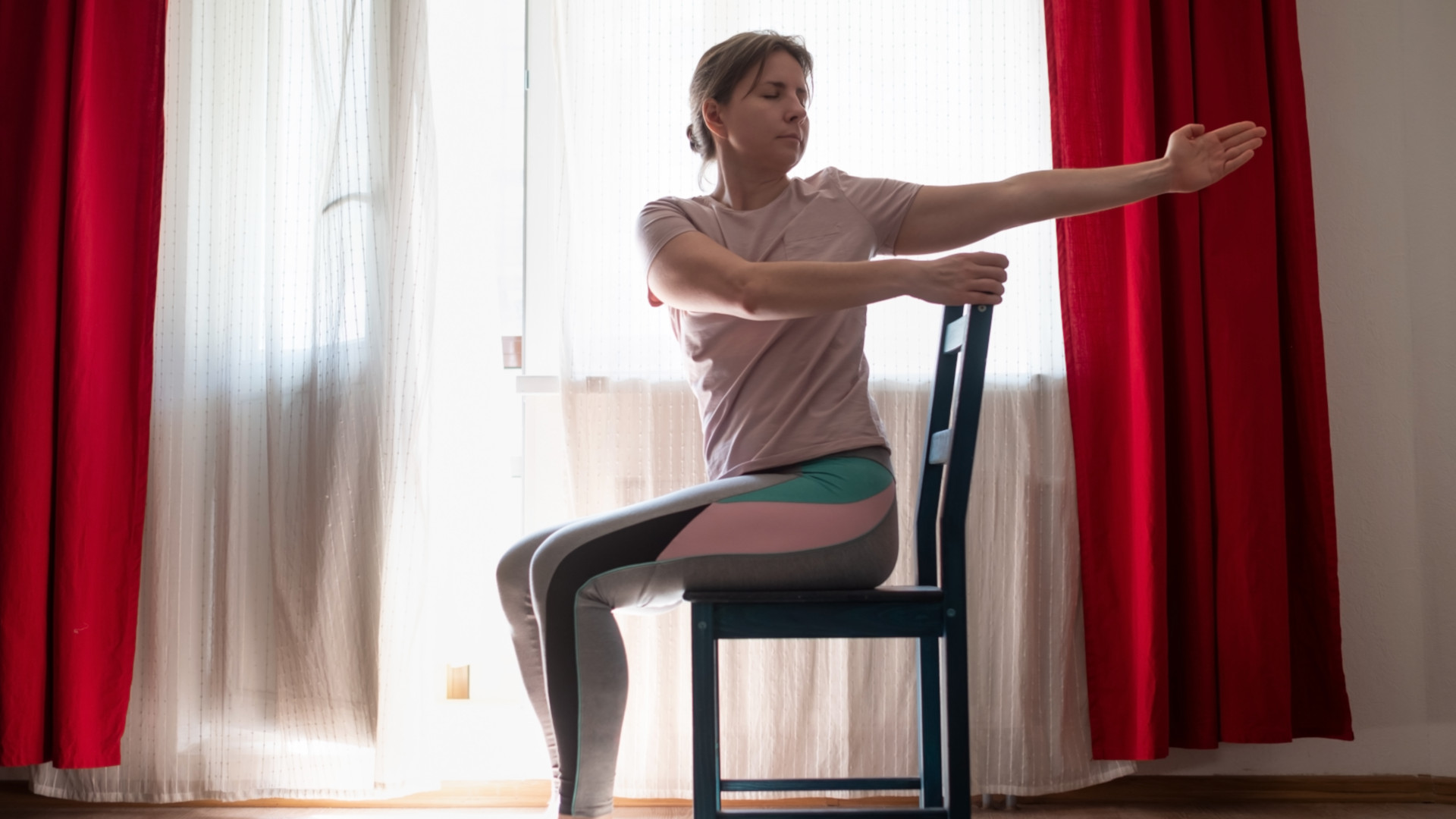
Like any form of movement or exercise it's wise to start off small and gradual to minimise injury or any setbacks. Healthline suggests there are many benefits to regular stretching, such as reduced body aches, improved posture, improved flexibility, and so on.
My stretching routine
The time I stretched was varied each day, depending on commitments. As it was only 10 minutes at a time, I could squeeze a session in at any point and still reap the benefits. That was the plan, anyway! I decided to perform the routine in my living room on a large rug, mainly because stretching there felt like the least amount of effort.
Alternatively, you can roll out a yoga mat, whichever works best for you. I set the timer on my phone to ensure I completed 10 minutes. Unsurprisingly, the time went very quickly, and I often felt, especially toward the end of the month, that 10 minutes wasn't enough.
Get all the latest news, reviews, deals and buying guides on gorgeous tech, home and active products from the T3 experts
My approach to stretching is to work from the top of the body down to my feet. I start with my neck, gradually working through my shoulders, torso area, hips, spine, and legs. I found holding stretches for longer beneficial if a particular pose felt particularly stiff, a technique often used in Pilates. If Pilates is something you want to try, check out this 6-minute Pilates workout to get you started.
Breathing also played a crucial part in my routine. I breathed into the pose and tried to relax my muscles as much as possible. I also find stretching very meditative, so I use this time to reflect and take some time for myself.
10-minute stretch a day for a month: was it worth it?
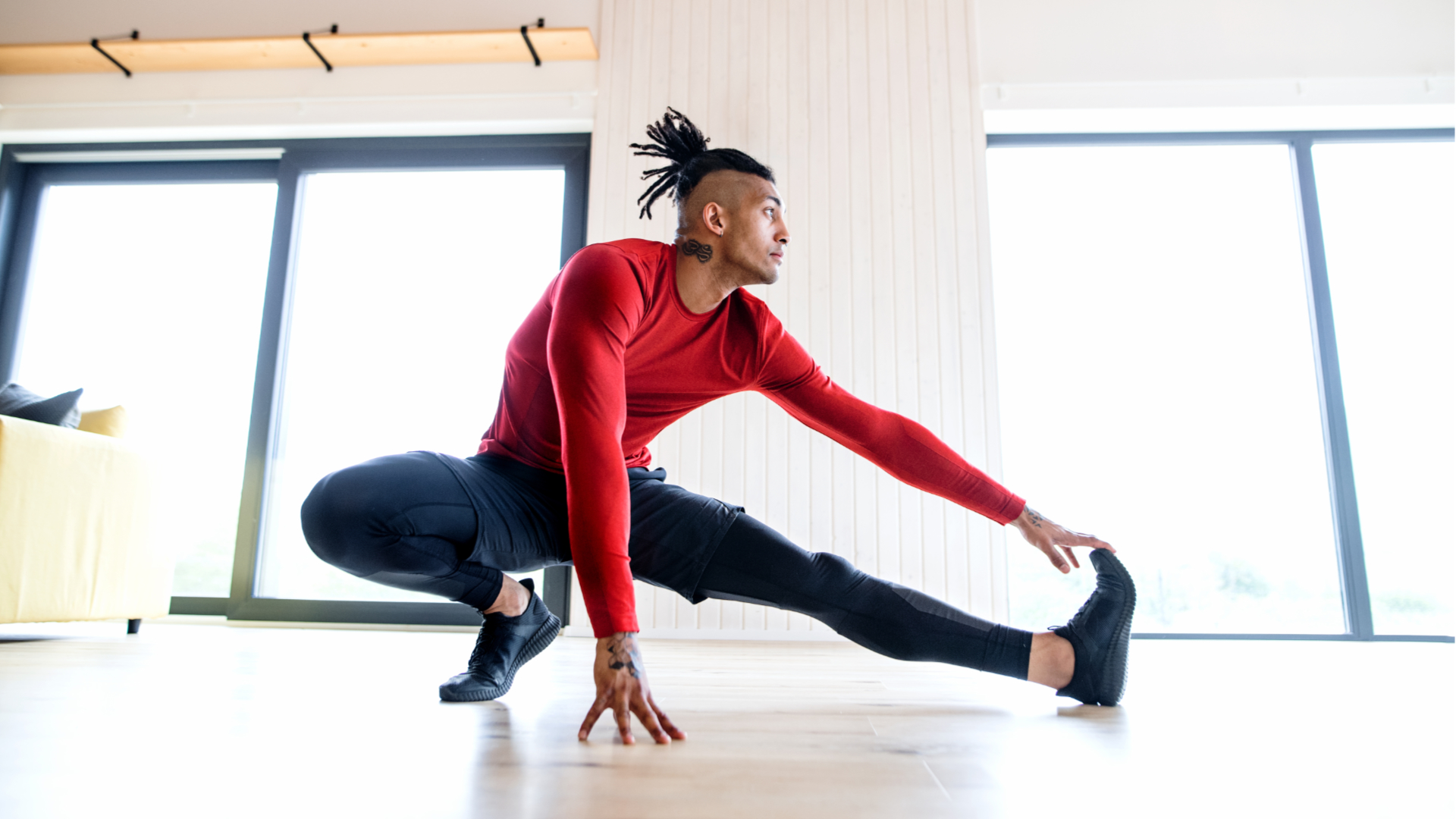
As always, when you plan on doing something new, you are fuelled with enthusiasm and excitement. With that in mind, my first week of stretching felt rather easy. I was in control of my new routine, and since each session only took 10 minutes, required no equipment, and very little space, it was very easy to stick to.
Initially, most of my stretching sessions were in the evening after the day's work or activities were finished. Stretching helped me to wind down and calm my mind before heading to bed – another big benefit to me.
Over the course of the month, I was aware of some areas (particularly my left leg due to the groin injury) that were very stiff, and I felt the stretching almost woke the injury up and made it a little achy. I wasn’t going to let this stop me, so I persevered carefully without pushing things too far. This improved each week, and I was able to spend a little longer on my hamstrings where it was particularly tight.
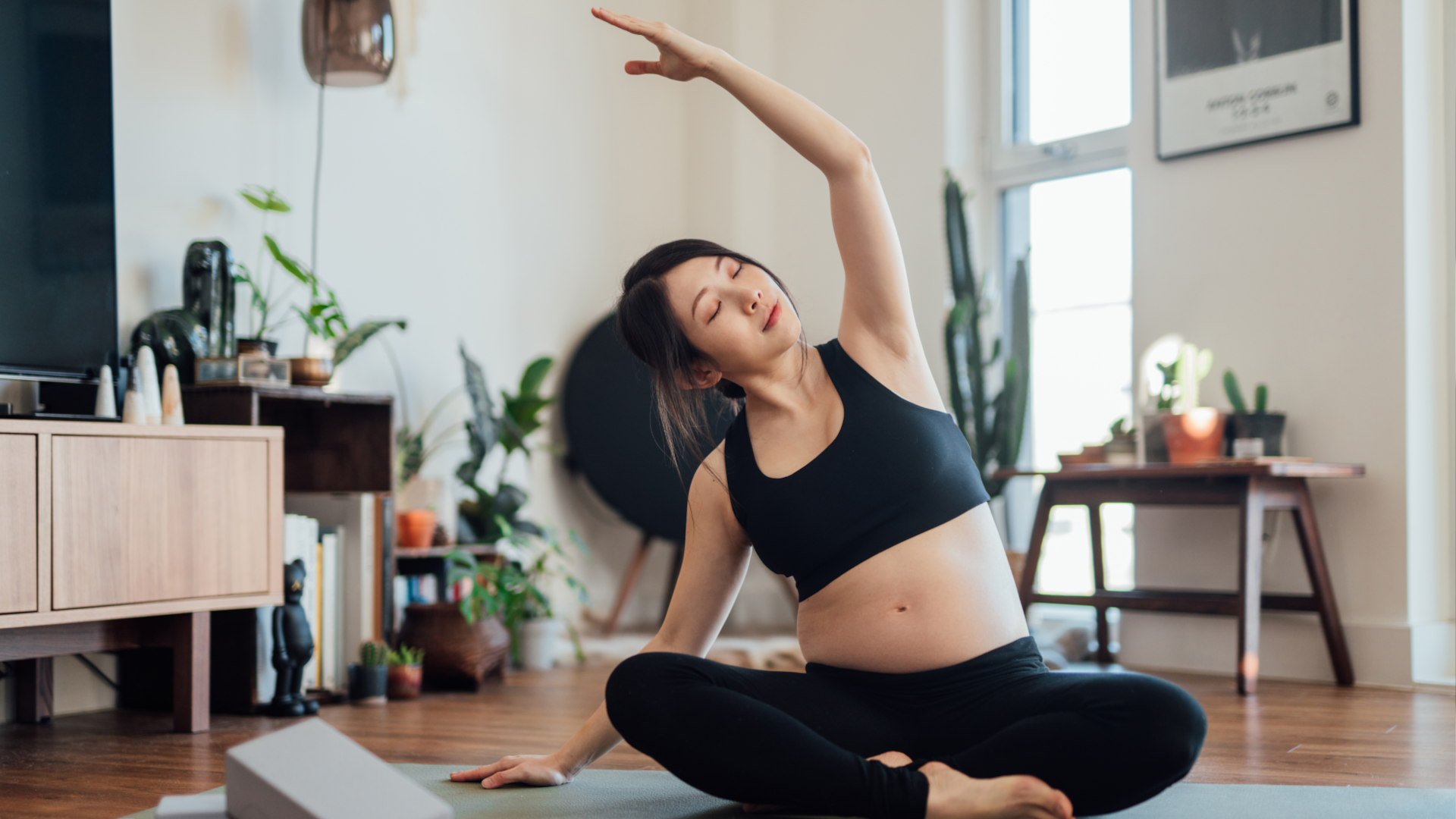
By week 3, as life got busier, I missed my nightly routine and found I didn’t benefit so much from the stretching when it was done at random times during the day. In my experience, stretching first thing in the morning or last thing at night works best to get the most out of the exercise.
In terms of improvement in flexibility, I noticed only minor improvements, which didn't surprise me. If you think about how many years it takes you to get the level of flexibility you are now (mine being quite stiff), it would be foolish to think you could become a bendy person in just 30 days.
However, I have noticed many other benefits, such as a better range of motion, particularly through my spine, improved sleep with fewer aches on waking and a different mindset towards stretching.
I highly recommend giving 10 minutes of stretching a day a try to see what changes it makes to your life. This is something I will carry on doing through 2024, and even if I miss the odd day, I am going to get back on it right away. Pinky promise!
This feature is part of T3's Get Fit 2024 campaign. We’ll be bringing you a wealth of guides, features, deals and news to help you get healthy, fit and ready for anything the new year can throw at you. Whether you’re a newcomer to fitness or someone with a passion for it, we’ll bring you all the best workouts, diet advice and gear to set you on the right track.

Sophie is a mental health advocate who loves nature and exercise to equal measure. She enjoys attending a variety of dance classes and is currently enjoying learning Latin and ballroom. She finds comfort in long walks, sweaty HIIT workouts and long cycling trips culminating in picnics.
